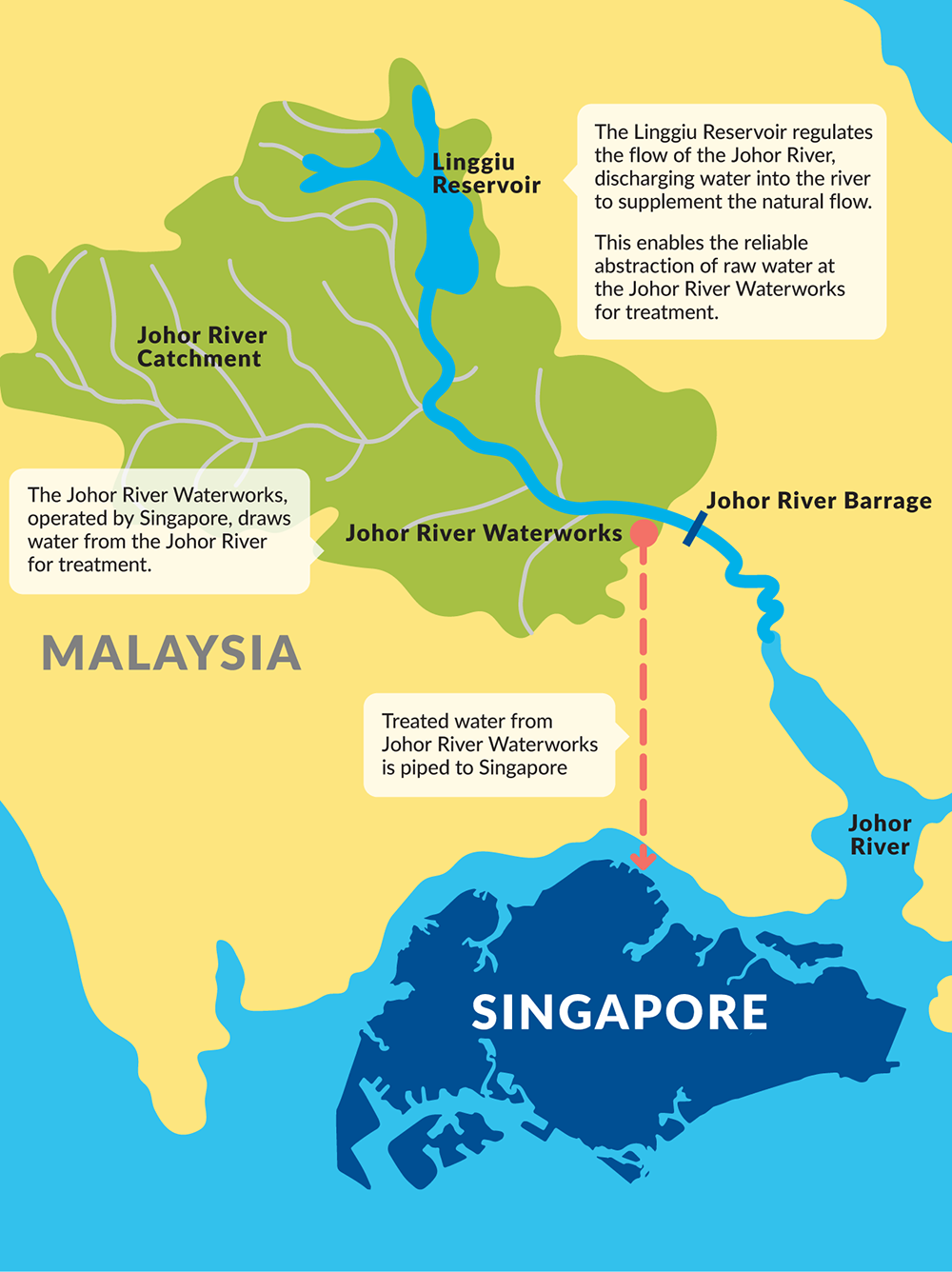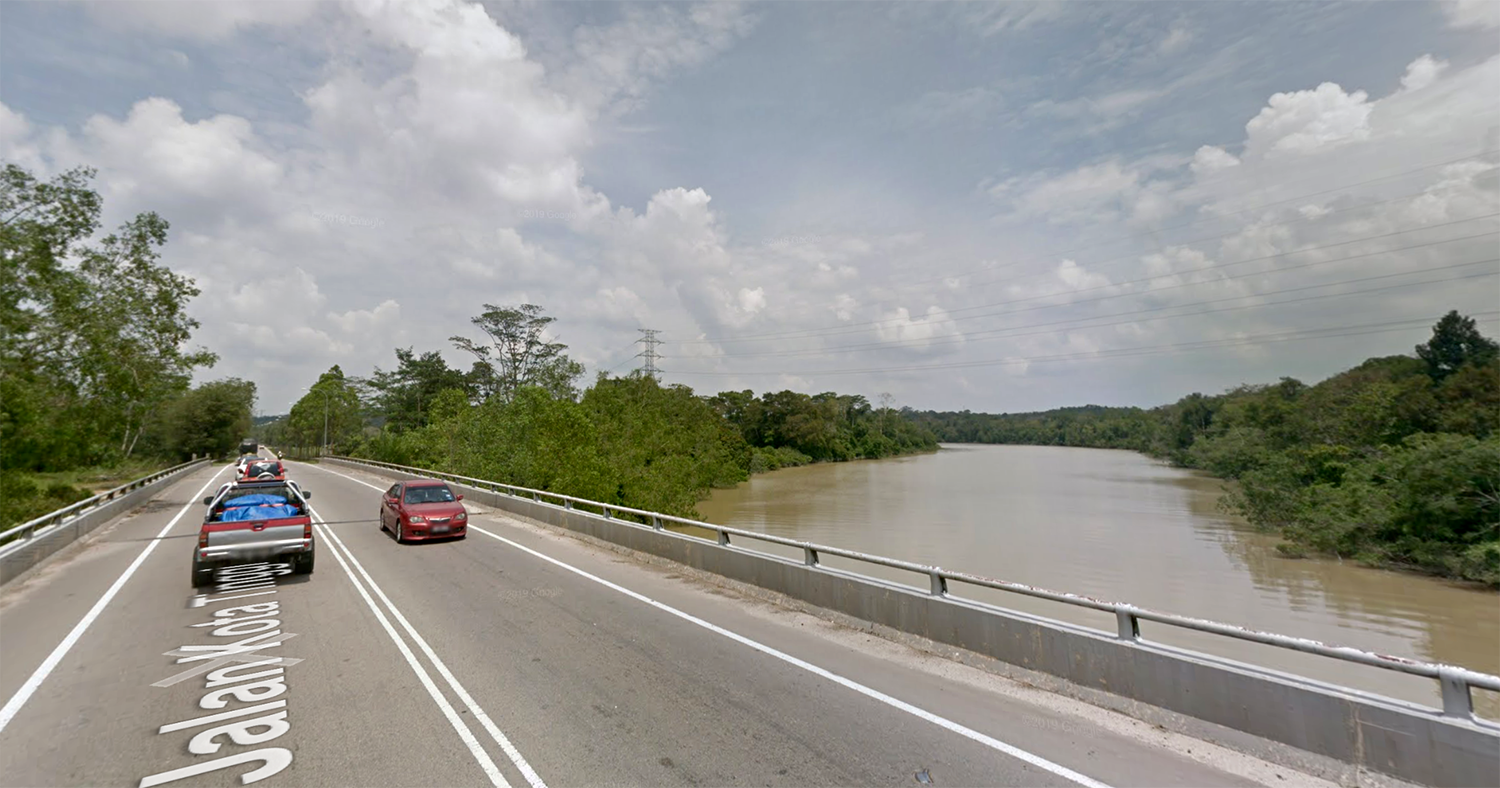Singapore is concerned about Johor River's long term yield as well as safeguards against pollution such as the one which plagued Sungai Kim Kim last month.
Prime Minister Lee Hsien Loong spoke about this during the 9th Singapore-Malaysia Leaders’ Retreat Press Conference on April 9.
Recent river pollution in rivers near Johor River
PM Lee highlighted two recent incidents - the dumping of chemicals into Sungai Kim Kim at Pasir Gudang as well as the shutdown of PUB's Kota Tinggi Waterworks due to severe ammonia pollution in Sungai Sayong, which flows into the Johor River.
"If Johor River suffers an incident like that which happened in Sungai Kim Kim recently, I think it would be disastrous for both countries," he said.
In the case of Sungai Kim Kim, the illegal dumping of toxic chemicals into the river on March 6 caused more than 2,700 people to take ill.
The Malaysian education ministry was also forced to shut down 111 schools in Pasir Gudang.
On the other hand, Sungai Sayong was contaminated on April 3 after a reservoir at the bio-composite centre next to a palm oil mill burst, causing contaminated water to flow into the river.
Three water treatment plants - Semangar, Sungai Johor and Tai Hong - were shut down.
Long term yield of Johor River
Another concern highlighted by PM Lee is the sustainability of Johor River.
"Johor has built water plants on the river, upstream of PUB's Waterworks at Kota Tinggi. One is Logi Air and the other is Semangar Plant. And these plants combined - plus the Kota Tinggi Waterworks belonging to PUB draw from the Johor River quite possibly more water than the river can sustain."
Further, hot weather in recent years have led to the water levels in the Linggiu Dam dropping to alarming levels.
Today, Singapore is allowed to draw up to 250 million gallons of water per day, as guaranteed by the 1962 Water Agreement.
According to PM Lee, both countries need to study how to meet their water requirements for the remainder of the Water Agreement and hence, reduce the potential for conflict.
Why is the Johor River important to Singapore?
Imported water is one of Singapore's four National Taps.
The water Singapore imports comes from the Johor River. The Johor River is supplemented by the Linggiu Reservoir. Water from the Johor River is abstracted via the PUB-owned Johor River Waterworks and piped to Singapore.
Here's a nifty diagram to illustrate how it works:

Under the 1962 Water Agreement, Singapore can draw up to 250 million gallons of water a day from the Johor River, and Singapore is obliged to provide Johor with treated water up to 2% of the water we import.
This 1962 Water Agreement will expire in 2061. In the meantime, Singapore is working hard to reduce its reliance on imported water.
Both Attorneys-General to discuss water issue
According to a joint statement put out by the Prime Minister's Office, both leaders noted the interests of both countries to increase the yield of the Johor River, and safeguard its environmental conditions and water quality to the extent required by the 1962 Water Agreement.
Both countries have agreed for their respective Attorneys-General to discuss their differing positions.
You can watch the video from the conference below:
PM Lee's speech about the Johor River is reproduced below:
"[From] Singapore's point of view, there are two concerns that we have concerning Johor water. Firstly pollution, because just last week, the PUB Kota Tinggi Waterworks had to shut down because of high ammonia levels. And the source was traced to a palm oil mill in Sedenak in the catchment area. And if Johor River suffers an incident like that which happened in Sungai Kim Kim recently, I think it would be disastrous for both countries. So that's one concern we have.
The other concern is the long term sustainable yield of the Johor River. Johor has built water plants on the river, upstream of PUB's Waterworks at Kota Tinggi. One is Logi Air and the other is Sumang Plant. And these plants combined - plus the Kota Tinggi Waterworks belonging to PUB draw from the Johor River quite possibly more water than the river can sustain. So we need to study how to meet both Johor's and Singapore's water requirements for the remainder of the Water Agreement. It's in both countries' interests to work together to ensure sustainable water supply for both sides because this will reduce the potential for conflict between the two countries."
Top photo via Google Maps.
If you like what you read, follow us on Facebook, Instagram, Twitter and Telegram to get the latest updates.
